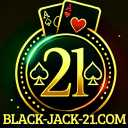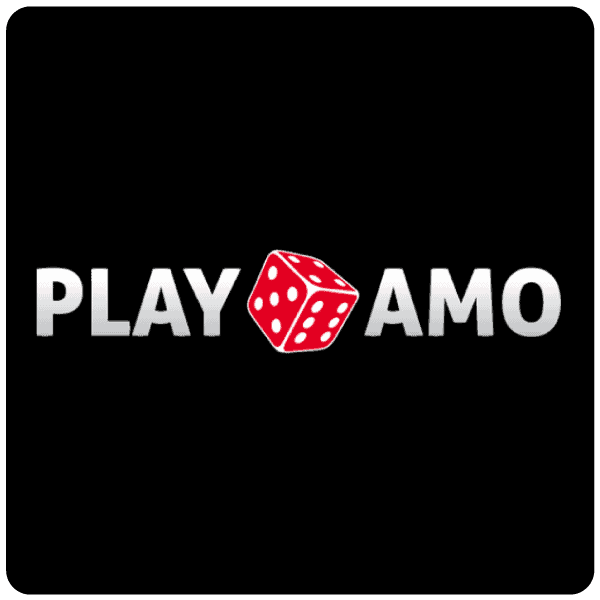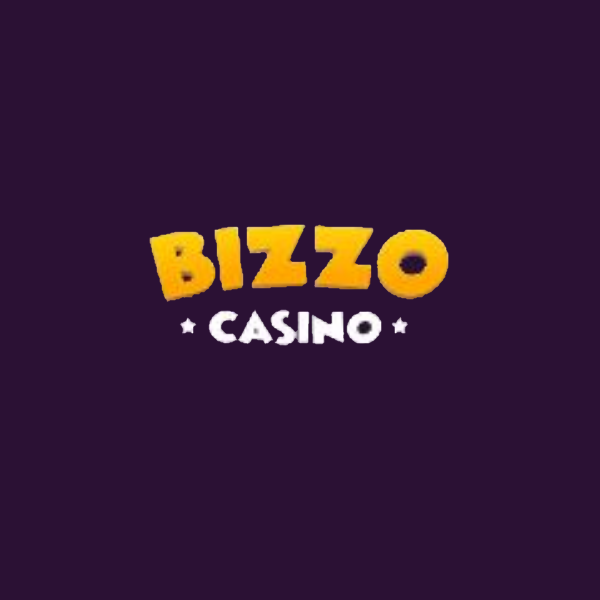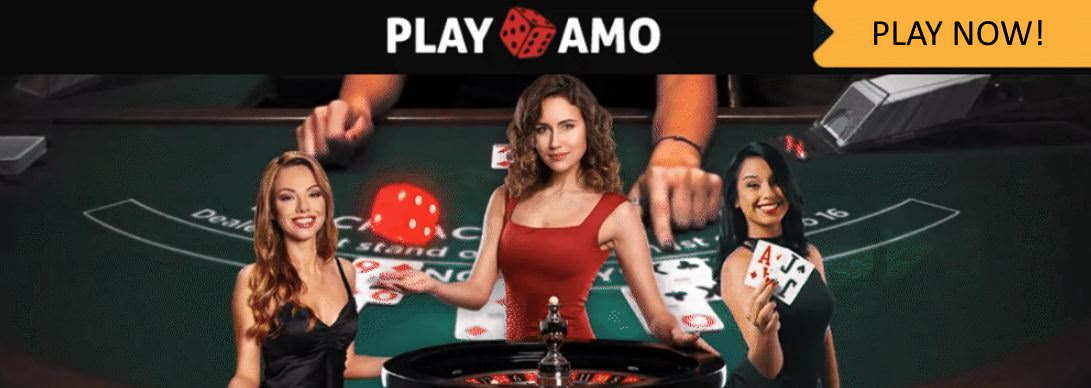The casino has a special offer for every game, including the blackjack Hausvorteil. Die Regeln so sind, dass die Bank immer gewinnt. Doch Black Jack hat gute Odds.
Calculate Black Jack house edge
The Black Jack house edge is a mathematical concept that calculates the long-term profit opportunities of the Casinos towards the player. It is based on the assumption that the players are looking for optimal Strategy play. The house advantage varies depending on the rules of the game and the player's strategy.
Where do we play blackjack online?
The best Experience at Black Jack we have in the Playamo Live Casino made. In my opinion, that's where it's at, BEST SELECTION at tables with live dealers and you can train very well for the real casino! Compared to other online casinos, the winnings at Playamo are really paid out and that's why I would recommend Playamo online casino definitely recommend!
The Playamo Casino has many live tables for blackjack and a schnelle Auszahlung from Win.

Factors influencing the house advantage
The Black Jack house edge is influenced by several factors:
- Rules of the game: Variants such as the number of decks, double down rules and Payout ratios influence the house advantage.
- Player strategy: A player who masters the basic strategy perfectly can significantly reduce the house advantage.
- Card countingExperienced card counters can further reduce the house edge by adjusting their bets based on the deck.
To calculate the house edge, we need to consider the probabilities for all possible player and dealer card combinations. Here is a simplified Tablewhich shows the average house edge for different game rules:
| Rule | House advantage |
|---|---|
| Standard rules | 0.5% to 1% |
| Single Deck | 0.15% to 0.5% |
| Double Exposure | 0.7% to 1% |
| Spanish 21 | 0.4% to 0.8% |
| Blackjack Switch | 0.6% to 0.9% |
Myths about the house advantage
There are many myths and misconceptions about the blackjack house edge. Here are some common misconceptions:
- Card counting is illegalCard counting is not illegal, but casinos can exclude players from their establishments.
- Past profit influences future resultsEach game is independent of previous results.
- Higher stakes lead to higher winningsThe house advantage remains unchanged, regardless of the size of the bet.
Legal blackjack tips and tricks to reduce the house edge
Although the casino always has a certain advantage, there are some legal tricks to improve your chances of winning:
- Take advantage of bonuses and promotions: Many online casinos offer generous bonuses and promotions that will boost your Bankroll can increase.
- Games with optimal strategyLearn the basic strategy and apply it consistently to minimise the house advantage.
- Avoid side betsSide bets often have a higher house edge than the main game.
- Card counting learnCard counting is the only strategy that really helps to beat the house advantage in the long term.
Basic strategy
The basis for beating the Black Jack house edge is knowledge of the basic strategy. This strategy is based on mathematics and takes into account the probabilities for every possible card combination of the player and the dealer. By consistently applying the basic strategy, the house advantage can be reduced to a minimum.
The basic strategy includes decisions such as Hit (take another card), Stand (don't take another card), double down (double the bet and take another card) and split (split the hand into two separate hands). These decisions depend on the player's current hand and the dealer's face-up card.
An example of basic strategy is the hit or stand diagram, which shows which action the player should choose depending on his hand and the dealer's face-up card. By memorising and applying this strategy, the player can significantly reduce the house advantage.
Card counting
Card counting is an advanced technique with which experienced players can Black Jack house edge can be further reduced. This technique is based on the fact that Maps with a high value (10s and Aces) are in the player's favour, while cards with a low value (2 to 6) are in the dealer's favour.

The player keeps track of the high and low cards remaining in the deck and adjusts his bet accordingly. If many high cards remain in the deck, the player increases his bets as the probability of a natural blackjack or a strong hand increases. If, on the other hand, many low cards remain in the deck, the player reduces his bets or leaves the game, as the probability of the dealer receiving a strong hand increases.
It is important to note that card counting requires a lot of practice and discipline and is undesirable in many casinos. Players who are caught counting cards can be expelled from the casino.
The Blackjack house edge is more than just a number
What is the house edge in blackjack? Can you tell me off the top of your head? There's more than one answer, right? After all, there are several variations of the game.
The house edge can vary depending on the casino you are playing at. Depending on the title, you could be faced with a plethora of different percentages. In some cases, it ranges from 0.5 % to 4 %.
It is always good to know the house advantage in this game. But it is not a rule book.
FOR EXAMPLE
If someone says that a game has a house edge of 5 %, that means that you will lose an average of 5 % of your bet every time you bet. In other words: If you bet $100 per bet, you should expect to lose $5 on each bet.
Sounds simple, doesn't it? From a gambling mathematics perspective, it's certainly not opaque. But there's more to this sum than meets the eye. For example, if you play a game where you place 60 bets per hour and lose 5 $ per bet, you lose 300 $ per hour.
On the other hand, if you play the same game with a house edge of 1 %, you only lose 60 $ per hour. Isn't that a big difference?
It's important to emphasise that winning or losing is about much more than just sticking with blackjack. Pun intended. Knowledge is power, but it's also about giving yourself the best chance of winning at blackjack. Not only do you need to find the best variants, but you also need to find a top-notch online casino with blackjack games. If you do that, you're halfway there.
The house advantage only applies to a large betting sample
As with any mathematical calculation, you need a sufficient sample size to arrive at a logical conclusion.
Therefore, the house edge does not apply to a statistically small group of bets. We need a sufficiently large sample to determine what a house edge is. Blackjack is no different.
Let us examine a simple example to illustrate what I am saying here.
You play a blackjack game with a house edge of 1 % and place a bet of 100 $ on a hand. You therefore have several possible outcomes to determine how this bet turns out. These are listed below.
- $100 Profit
- $100 Loss
- $150 Profit on a Natural
- A push
- Additional profit of $200 for double down or split
It makes no sense for us to use the same mathematical expectation here as we would for anyone betting a dollar a hand on blackjack.
And why? Well, it's impossible to win a dollar with a single $100 bet. You could lose an average of $1 per hand if you bet $100, but that would require an incredible number of bets.
To reiterate, you could play one hand and win $100, you could play ten hands and have a net loss of $400, which equates to an average loss per hand of $40. You could play a hundred hands and have a net loss of $500, which equates to an average loss per hand of $5.
But as soon as you play more than 1000 hands, the actual results will be similar to the mathematical expectation. With 10,000 hands, it is even more likely that you will statistically see something that corresponds to the mathematical expectation.
With 100,000 hands, you are almost certain to come close to the expectation. With 1 million hands, the probability that the results will deviate from the expectation is almost zero.
By the way, you would need 16,667 hours to play one million hands. If you played 40 hours a week, you would need 416 weeks to achieve this, or about eight years of full-time play. Nobody has time for that.
Blackjack house edge is lower than most games
The house edge is much higher in most casino games than in blackjack.
This raises the question of why casinos still offer blackjack at all. After all, it is less profitable than games such as Caribbean Hold'em or Casino War.
Some gambling authors refer to games such as Casino War as "carnival games". Man. How bad does the house edge have to be for it to be labelled a carnival game? As it turns out, the house edge on Casino War is a whopping 2.88 %. That doesn't sound like much. It's certainly not as high as throwing rings at gas cylinders. And I'd prefer 2.88 % to the risk you take eating one of those dodgy hot dogs at the bumper cars.
But let's think about what that means. If the house edge in blackjack is 0.5 %, you can expect an average loss of 50 cents every time you bet 100 $.
With Casino War, on the other hand, you can expect an average loss of 2.88 $ if you bet 100 $. That doesn't sound like much of a difference, really. After all, you can't even buy a hot dog for 2.88 $ these days.
The problem is that nobody plays a single round of blackjack or a single round of casino war. Most people play for an hour or two. That means you're more likely to play 60 or even 120 hands.
At 50 cents per hand, you might lose three to six dollars in this scenario. At $2.88 per hand, you're looking at a loss of almost $180 on the low end and maybe even $360 on the high end. And that's only after a few hours of play.
Suddenly your mate who told you blackjack was for sissies doesn't look so smart, does he?
I would recommend taking him to the carnival and buying him a good old hot dog....
The house edge in blackjack is 0.5 % with a simple strategy
You must be satisfied with this figure?
Of course, this 0.5 % can go up or down depending on your skill level. Most players are bad enough if the basic blackjack strategy gives up another 1.5 % or so to the house. This can increase the house edge for the casino by 2 %.
This is one of the answers to the question I asked above: Why does the casino offer blackjack if the house edge is so low? Well, the multi-faceted answer is actually relatively simple. Firstly, blackjack is a profitable game that is very popular and widely played. Do you think a casino that doesn't offer blackjack is sending a strong signal of confidence? No, of course not.
You would probably expect to run into one of the many potential online casino scams for this reason alone.
Secondly, most players won't take the time or bother to keep the house advantage that low. You see, basic strategy is just a fancy word for the ability to be at your best in any situation. Blackjack table to make the right mathematical decision.
In poker, you need to know when to fold and when to hold. In blackjack, you need to know when to press, stand, Share and must double down. The right decision always depends on which cards you have in your hand compared to the dealer's face-up card.
In many cases, common sense can determine your game.
It's the borderline situations, such as whether you should hit the hard 15, that make the difference in basic blackjack strategy. Find out more about blackjack strategy and improve your chances of winning!
Basic Blackjack Strategy
No blackjack strategy means a higher house edge
Remember when I mentioned that the house edge is closer to 2 % if you have a bad basic strategy?
Well, it could be even worse than that. You could theoretically go all the way to Bust play. The house edge of a dysfunctional player would then be 100 %. Of course, nobody plays like this, but it is a simple example of how such a difference in house advantage is possible.
Many players make basic strategic decisions by imitating the dealer's strategy. This is one of the worst ideas you can enter a casino with.
Other players always assume that the dealer has a 10 in the hole. Although this comes closer to the correct basic strategy, it is anything but foolproof. In some situations, this is a recipe for disaster.
However, the bottom line is simple. You should always use a basic strategy to minimise the house edge. Provided you really want to win and are not a masochist who enjoys losing his money.
You can calculate your expected hourly loss
You definitely can. Once you know how high the house edge is in blackjack for the game you are playing.
We've already touched on this in a previous example, but here's a detailed explanation of how to calculate your average loss per hour at blackjack.
You take the net amount you have won or lost and divide it by the number of hours you have played.
For example, if you played for two hours and lost $200, you lost $100 per hour.
In this way, you can calculate your actual hourly loss rate. But you can also calculate your expected hourly loss rate. You probably won't see your numbers reflect this until after 10,000 hands or so, but it's still worth knowing.
The formula for the expected hourly loss is as follows.
Average stake amount X stakes per hour X house edge = expected loss per hour.
Here is an example.
I bet $100 at a table where I get 60 hands per hour. I am a perfect basic strategy player and the game is good, so the house edge is only 0.5 %.
My expected loss per hour is $100 X 60 X 0.5%, or $6000 X 0.5%, or $30/hour.
Compare that to my friend Steve who doesn't use a basic strategy. The house edge is 2 % against him, so his expected loss per hour is 120 $/hour.
Incidentally, you can perform this calculation for any casino game - not just blackjack!
Counting cards can give you an advantage over the house
Counting cards
If you learn to count cards (or master another advantageous playing technique in blackjack), you can gain an advantage over the house.
What is this magic, you ask? It has nothing to do with magic. Once you have mastered the basic strategy, you can move on to card counting.
When counting cards, a relative count is made of how many high and how many low cards are left in the pile. If there are a lot of high cards left in the pile, the player increases his bet.
Here is the how and why of the game.
High cards are tens and aces. You need these cards to get a blackjack, which pays out at 3 to 2. If the probability of getting a blackjack is higher, the expected value of your bet increases.
Low cards make it more difficult to get a blackjack. They also increase the likelihood that you will go bust.
If you bet more when there are a lot of high cards in play and bet less when there are no high cards in play, you can change the odds in your favour rather than in the house's favour.
If you use a simple count like the Hi-Lo system and your stakes vary between 1 and 3 units, you even have an advantage of 1 % over the house.
You can also use this information to calculate an average expected hourly win rate. It's the same calculation: you win now instead of losing.
With an average of 100 $ per sheet and an advantage of 1 % over the house, you gain an average of 60 $ per hour.
But even if you count cards and apply a perfect strategy, these results only materialise in the long term.
You cannot expect to have an advantage until you have reached 10,000 hands.
Card counters can even go broke if their bankroll is not large enough to account for the statistical variance.
The house advantage may vary depending on the game
The rules of blackjack vary greatly from casino to casino and from table to table within a casino. For example, you could be playing a game where only one deck is dealt. The table next to you might be using eight decks. The house edge differs depending on the game conditions.
Other game conditions and rule variations include whether or not the dealer hits a soft 17, whether or not you can double down after splitting, and how much you get paid if you hit a "natural" hand (a hand with 2 cards that totals 21). Skill? Luck?
The following Points on the list deal with the impact of some common rules and conditions on the house edge that you might encounter.
So, read on!
More decks mean a higher house edge
The house advantage in blackjack increases when the casino has more Packs of cards used.
This deviation from the rules may seem puzzling at first glance. Why should the house edge increase just because more decks are used? You still have a similar ratio of high to low cards. In fact, before the cards are dealt, the ratio is exactly the same.
The answer lies in the probability of getting a blackjack.
Suppose you are playing in a blackjack game with only one deck. You receive a Ace as the first card. There are 51 cards left in the deck, 16 of which have a value of 10. The probability of receiving a blackjack (which is paid out at 3 to 2) is 16/51, i.e. 31.37 %.
LET'S CONSIDER THE SAME SITUATION WITH EIGHT DECKS IN PLAY.
You are dealt an ace. You now have 415 cards left in your shoe, 128 of which have a value of 10. The probability of getting a blackjack is 128/415, i.e. 30.84 %.
The probability of getting a blackjack is therefore lower if there are more decks in play. Fewer blackjacks mean a higher house edge.
The actual difference in house advantage between a game with eight decks and a game with one deck is about 0.25 %. That may not seem significant. But in the long run? In the long run, it certainly is.
A soft 17 of the dealer can affect the blackjack house advantage
That's right - a dealer hitting a soft 17 can also change the house edge.
Everyone knows that in a game of blackjack, the dealer has to hit a total of 16 or less. And it's always a pleasure to see a dealer go bust, especially if you didn't go bust first. But in some casinos, the dealer stops at a soft 17. In others, the dealer hits a soft 17. A "soft" 17 is a hand with an ace that can count as 11 or 1.
You don't have to guess what the rule is either. At all blackjack tables in all casinos, one of the two rules is written down and displayed at the table:
The encoder must stop on all 17s.
Dealer meets Soft 17.
You might think that a dealer who hits a soft 17 is more likely to go bust. And you're right.
That's exactly what it means. But that doesn't mean the rule is good for the player. In cases where the dealer does NOT go bust, his hand will improve dramatically.
In fact, this happens so often that a blackjack table where the dealer hits a soft 17 has a 0.2 % chance of winning.
Improve the house advantage by doubling after a split
If you are looking for the Splitting can double, the house advantage improves.
Most players realise that the ability to double down is good for the player. After all, you can bet more money if you think you are in a good situation.
The ability to double down after splitting gives you additional opportunities to bring more money into play if you like your odds. This is good for the bottom line.
Not all casinos allow you to double down after splitting. If you are allowed to double after splitting, you can deduct around 0.15 % from the house edge.
Now, if you saw a live dealer blackjack casino that denied you this, would you believe that the game was rigged? No, of course not. But those are the rules, depending on where you play. And sometimes they don't make sense to the amateur player.
But of course that does not mean that Online Blackjack is manipulated!
5 reasons why online blackjack is not rigged
Is online blackjack rigged? Before I answer this question, let me start with a simple fact: No one thinks the game is rigged when they win. It's our impressive gambling intelligence that makes us winners, right? Luck is for dummies. So.
It is an advantage to be flexible when doubling up
The more flexibility you have when doubling, the lower the house advantage.
In some casinos, you can only double with the first two cards if you have a total of 10 or 11. In other casinos, you can also double down on a 9. And in some casinos, you can double down on any amount.
The more options you have, the better off you are, of course. - Emphasis/highlight
In this case, doubling down on any two cards will reduce the house edge by almost 0.2 % compared to doubling down on just a 10 or 11.
Keep this in mind. You need to master a basic strategy for this to matter! The house edge in blackjack doesn't shift just because you want it to. This applies to the classic, bonus and double-attack variants.
You can reduce the house edge by splitting with more options
The more flexibility you have when splitting, the lower the house advantage!
As always, the more options you have, the better off you are. Splitting pairs is obviously an attractive option for players, as you can bet more money again if you like your situation.
For example, if you can split aces, you get two hands that both have almost a 1/3 chance of turning into a blackjack. In many casinos, you are only allowed to split once. In some casinos, however, you can split again if you get a pair on your newly split hand.
This has a smaller impact on the house edge than most things on this list, simply because it happens less often. If you can split up to 4 hands, you will receive an additional 0.05 %.
Great!
Task rules influence the house advantage
You should pay attention to this!
Most players ignore the possibility of giving up. This is a mistake because it costs money in the long run. In some situations, surrender is the right play. Casinos have "Early Surrender" and "Late Surrender". However, some casinos do not offer a surrender option at all.
You need to know the following.
In a casino that offers early surrender, you can forfeit half your bet if the dealer has an ace and you don't like your hand. This is called "early" surrender because you can make this decision before the dealer looks for a blackjack.
In a casino that offers late surrender, you have the same option.
But the dealer first checks whether you have a blackjack.
One is clearly better than the other, don't you think? You should also consider this before playing blackjack for real money in a casino.
A natural can also change the house advantage
The payout for a natural card, which we call blackjack, has a significant impact on the house edge.
The traditional payout for a natural is 3 to 2. That means if you bet $100 and get a blackjack, you win $150. In recent years, however, casinos have started offering games where blackjack only pays 6 to 5. And since many Americans are bad with fractions, they don't even realise that this is a worse deal.
Because 6 is better than 3 and 5 is bigger than 2, they think they're getting a better deal. I'm not trying to attack anyone here, but does anyone remember when McDonald's launched a third-pound burger to improve on the quarter-pounder? Does anyone have any guesses as to why the 1/3 pound burger was a flop?
Admittedly, most people are smart enough to recognise the difference. It's only a minority of people who are being deceived here.
But that doesn't mean smart players don't get complacent and check the payout tables. So if you get a blackjack with a bet of 100 $ on a 6 to 5 table, your payout will only be 120 $ and not 150 $. If you had checked, you probably would have declined that game.
This effect on the house edge is so dramatic that it cannot be overestimated. It increases the casino's advantage by an enormous 1.5 %. This makes blackjack a game comparable to Casino War, but it is more difficult because you still need to apply a basic strategy.
Just say no to 6/5 Blackjack!
Casinos that charge an ante increase the house edge
Suppose a casino raises an ante and the house edge soars. It's as simple as that.
In some casinos in Oklahoma you can Play blackjackbut have to pay an ante. This part of the stake goes to the house, full stop. The most common Blackjack bet in Oklahoma is 50 cents for a bet of 5 dollars.
You will not get the 50 cents back, regardless of whether you win or lose. This means that immediately 10 % of the winnings deducted. That makes one-bet blackjack as bad as any fairground game I've ever seen. Granted, if you have to play blackjack with an ante, the only mathematically correct way to reduce that extra house edge is to bet as much as you can.
A 50 cent ante on a $100 bet only increases the house edge by 0.5 %, which is a very different number to 10 %. However, you'd be better off finding one of the best US online casinos and playing blackjack there. You will get a better game.
I'm not going to lie. I played blackjack in Oklahoma with an ante. But I'm a little embarrassed about that.
I should stick with Texas Hold'em when I'm in Oklahoma. Even most slot machines are better than blackjack with stakes!
Video blackjack has a higher house edge than live dealer games
Did you know that the house edge in video blackjack is much higher than in a traditional game with a live dealer?
Video poker is by far better than slot machines. The payback percentage on video poker games is usually at least 95 %, which means that the house edge is (at most) 5 %. With slot machines, you'll be lucky to find a game with a similarly high payback percentage.
You might think that video blackjack is comparable to video poker and a great game. But that's not the case at all. In all the video blackjack games I've ever seen, there was even money for a natural. That's worse than a 6/5 payout. This change alone increases the house edge by 2.3 %.
In most casinos, however, video blackjack has a Random number generatorwhich simulates the same probabilities as a card game.
One advantage of video blackjack is that it is also offered in a low stakes version. You can find video blackjack games where you can play for 25 cents per hand.
But the much higher house edge and faster game speed make video blackjack an expensive game. At a traditional blackjack table you might play 60 hands per hour, but in video blackjack you can easily play 200 or 300 hands (or more) per hour.
If you are determined to play video blackjack, you should play at one of the best live dealer casinos. The blackjack games at all the online casinos I've ever played at have offered full Payments for natural gains.
You can still win despite the house advantage
It is important to emphasise here that you can still win at this game. Despite the house edge that blackjack games entail.
But in the short term. This cannot be emphasised enough. Anything can happen in the short term with any game of chance. This is called variance. A more colloquial way of describing this mathematical phenomenon is to use the word "luck".
Think of it like this. If your mathematical expectation is to lose 1 % on every bet, you would have to make at least 100 bets before you see your actual results reflect this expectation.
In 2 or 3 hands, it would be impossible to see an average loss of 1 %. So here are the possibilities for three hands to illustrate this point.
You could win all 3 hands. This means a net win of at least 3 units.
You could lose all 3 hands. This means a net loss of at least 3 units.
You could win 2 hands and lose 1 hand. This corresponds to a net profit of 2 units.
You could lose 2 hands and win 1 hand. This corresponds to a net profit of 1 unit.
If you look at your average win/loss per hand in these situations, you get:
A win of 3 units on a bet of 3 units is a win of 100 %.
The loss of 3 units on a bet of 3 units is a loss of 100%.
Winning 2 units on 3 hands corresponds to a profit of 66.67 %.
The profit of 1 unit with 3 hands is a profit of 33.33%.
None of these results resemble the 1% that we expect mathematically over time.
Of course, these examples are simplified and do not take into account the possibility of winning 3 to 2 with a natural. But even if you take that into account, it's still impossible to see the mathematical expectation over a short period of time. If you only play for a few hours, you can often get away with a winning session.
The casino is well aware of this. If this were not possible, no one would play a casino game at all. The house has perhaps 10 blackjack tables in operation 24 hours a day. If there is an average of 3 players at each table and an average of 60 hands per hour, that's 43,200 hands per day.
With so few hands, casinos can even experience days with losses, although they have more frequent winning days. But over the course of a month or a year, the real numbers will approach the mathematical expectation.
You can still lose in the short term!
Even if you are an advantage player and have a head start on the house!
Some people think they can just sit down and win whenever they want because they can count cards and have an expected advantage of 1 % over the casino. What I said in the last section is just as true for advantage players. In the short term, anything can happen.
Only in the long term, over thousands of hands, can you expect your results to reflect expectations.
What can you take away from this knowledge?
Well, if you are an advantage player, you need a big enough bankroll to avoid going broke in the inevitable downturns. The smaller your advantage, the bigger your bankroll needs to be.
You should have between 200 and 1000 betting units. At the lower end, your risk of going bust is higher. If you are playing for $100 per hand and your total bankroll is $20,000, you have a 40 % chance of going bust before your advantage kicks in. On the other hand, if you have a bankroll of 100,000 $, the chance of going bust is only 1 %.
Some can pass these savings on to online casino players through better rules and a lower house edge. This doesn't necessarily mean you'll win. But it does mean you should get more action for your money.
IMPORTANT
Even if the house edge in an online casino is only 0.2 % or 0.1 %, you will go broke if you play long enough. And online casinos always have an advantage over the players.
The house odds for the various blackjack games from the different software providers are easy to find online. But it's important that you trust the sites you play on to give you the right facts and figures.
Therefore, when looking for the best blackjack house advantage, you should only use the safest online casinos.
Only video poker beats the blackjack house edge
The only game in the casino that has a lower house edge than blackjack is video poker, and only in certain game variations with certain pay tables.
There are video poker games with a payback ratio of 99.95 % or 99.54 %. This means that the house edge in these games is 0.05 % or 0.46 %. This is better than most blackjack games.
If you like video poker, you should definitely use these games. Some people don't like the interaction of casino table games. If this applies to you, stick to the slot machines. However, always look for the games with the lowest house edge.
One disadvantage of video poker is that it is inevitably played with low stakes. All my friends are low-rollers, so that doesn't bother us much. But if you want to bet 500 dollars at once, you can't do that in video poker.
With video poker, you can even gain an advantage if you choose the right games and strategically utilise the free points from the casino's slot machine club. But the stakes are so low that it's impossible to win much per hour.
If you're considering swapping blackjack for video poker, the following guide will tell you everything you need to know!
How you can use the house advantage in blackjack to your advantage
The house edge in blackjack is there for a reason. It is to ensure that the house always wins.
However, this does not mean that the house edge in blackjack games on the Internet or in your favourite pubs will always rob you of your winnings. In the short term, you can make a profit with this game. In the long term, your winnings will dwindle even faster if you are not vigilant.
The basic strategy is the first of many things you need to learn about blackjack. That's half the battle.
Aside from blackjack strategy, where you play is just as important as how you play. As the house edge in online blackjack can be favourable compared to land-based casinos, it's always worth keeping an eye out for the best titles.
Fortunately, there are some exceptional online casino sites that we trust in this area. You can check them out for yourself below!
Good luck!






